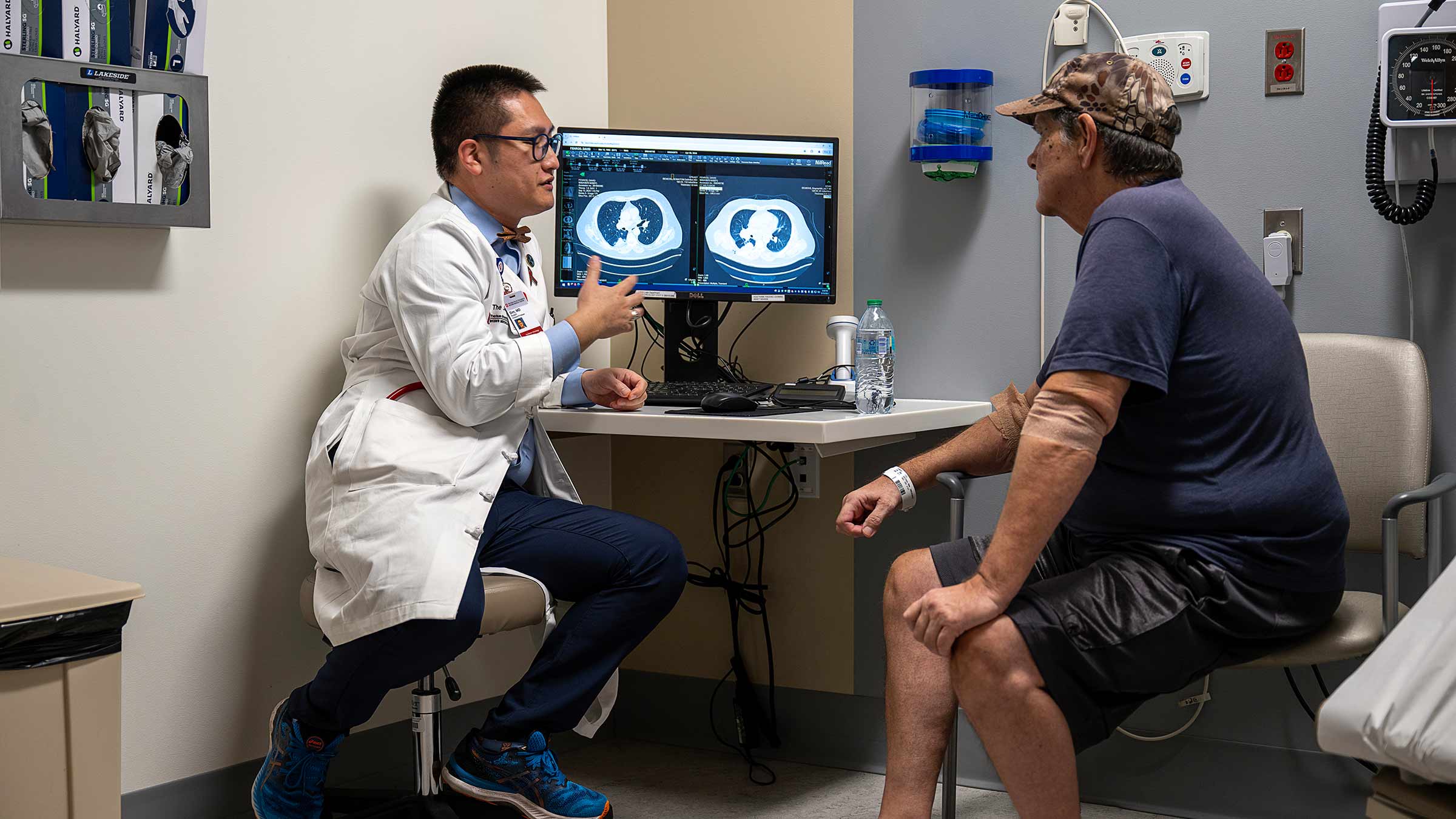
Mike Penrod took it as a sign.
His pastor had encouraged Sunday churchgoers in his rural community to schedule lung cancer screenings. Some, he said, might be eligible for the test when a mobile screening unit was due to roll into Meigs County from The Ohio State University Comprehensive Cancer Center – Arthur G. James Cancer Hospital and Richard J. Solove Research Institute (OSUCCC – James).
It was the third time someone had urged Penrod to schedule the exam.
The first two times, the recommendation had come from the convenience store clerk who used to sell Penrod cigarettes in the southeast Ohio county. In fact, she’d reminded him a few days before the pastor brought it up in church.
“I kind of said, ‘Yeah, I’ve heard that. I’ve got the message, I’m on it,’” Penrod says. “When I was younger, I used to think a lot of things were a coincidence. I know now that there is no such thing as a coincidence.”
He just might be right about that.
He soon discovered he had lung cancer. And if he’d waited much longer to get screened, his outlook might have been a bit more grim.
Many unaware of lung cancer screenings
The mobile lung cancer screening unit is the latest initiative from the OSUCCC – James to take cancer prevention efforts throughout the state.
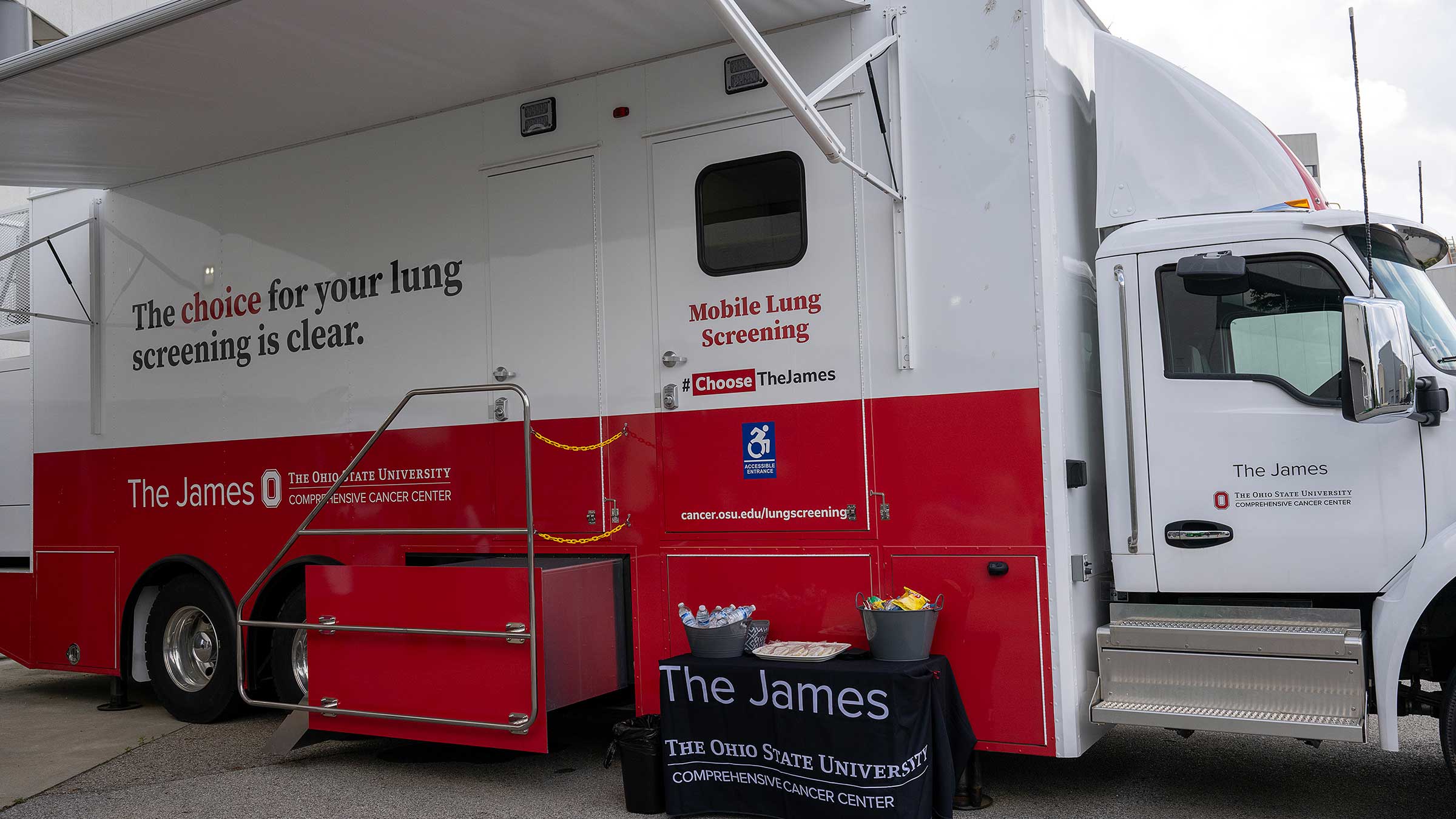
Lung cancer, the leading cause of cancer deaths, is highly treatable when caught early, but devastating once it spreads. That’s why screenings are so critical.
However, many people, as well as many health care professionals, aren’t aware they’re available.
“Lung cancer screening is the new kid on the block. It hasn’t been out, it hasn’t been publicized, hasn’t been embraced. So, the screening rates are extremely low,” says Electra Paskett, PhD, deputy director for population sciences and community outreach and founding director of the Center for Community Outreach and Engagement at the OSUCCC – James.
Part of the reason is the stigmatization of smoking.
“A lot of people think, ‘You smoke, so you deserve to get this. Why should I send you for lung cancer screenings?’ And that is very pervasive,” Dr. Paskett explains.
Also, she says, there’s confusion about who’s eligible for the test and many people don’t know that it’s covered by insurance, Medicare and Medicaid. Further, the low-dose CT scan exam is not yet widely available, and radiologists must be specially trained to read results.
Catching treatable lung cancer
Penrod says he hadn’t previously heard of lung cancer screenings and was unaware if he’d be able to get one near his home. The mobile unit fills that gap.
“It’s absolutely fantastic, because there are a lot of people that live down in this area that are maybe a little shy on medical attention and wouldn’t necessarily have the option of even doing something like that because it’s just not here, until Ohio State started coming down,” he says. “They’re doing that. And it’s a godsend.”
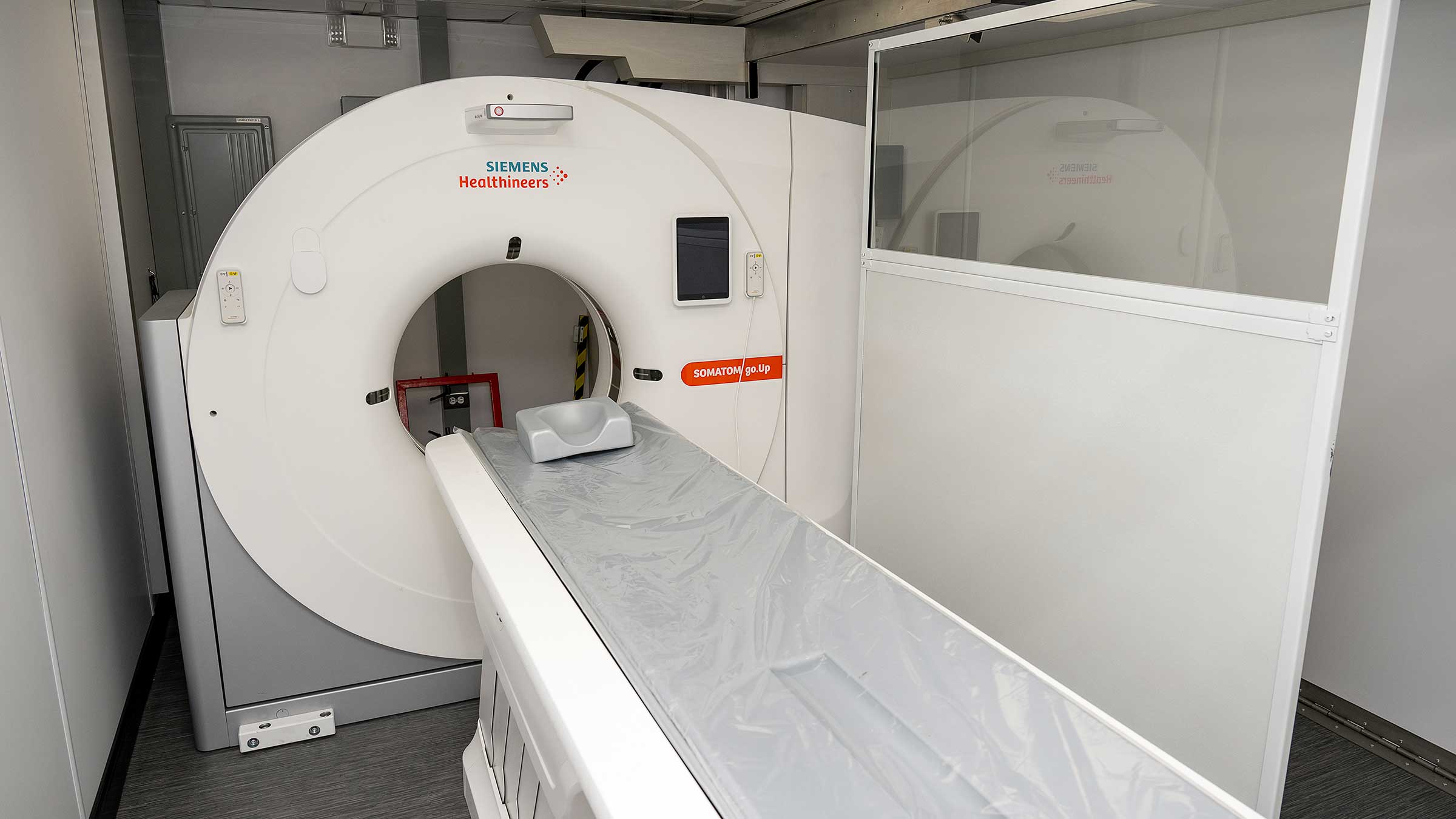
He never would have found out about his cancer without the mobile unit, he says. And that could have been devastating.
“If screening is not performed, the detection of lung cancer early is usually left to chance,” says Jasleen Pannu, MBBS, director of the Lung Cancer Early Detection program at the OSUCCC – James.
“Early lung cancer will not usually have symptoms. Because of that, it stays hidden and may not be discovered until it becomes large enough to produce symptoms, and by that time, the cancer is usually more advanced,” Dr. Pannu says.
Screening, Dr. Pannu says, has shown to reduce deaths from lung cancer by 20%.
“If a lung cancer is detected very early, the chances of patients living a cancer-free life are high. In stage 1A lung cancer, the five-year survival can be as high as 90%; whereas, if patients show up later in the disease, at stage 4, the average five-year survival from lung cancer can be less than 10%.”
Visiting remote areas
The mobile unit visits Appalachian and other rural and underserved areas, where smoking rates are higher and there’s less access to the needed technology.
Dr. Paskett points to the success of a similar program in Kentucky, where scanning rates were among the lowest in the nation. Since the program has been implemented, Kentucky’s rates are among the highest.
At Ohio State, the unit builds upon the success of another mobile unit that has been scanning for breast cancer for more than three decades. It visits several Appalachian counties that don’t have mammogram facilities, and people who receive the tests also receive follow-up care, much like what happens with the lung cancer screenings.
“Ohio State, in its mission, is dedicated to reaching out to the community equitably, including areas that are more rural or underserved, to get the cutting-edge technology and best care available to all residents of Ohio,” Dr. Pannu says.
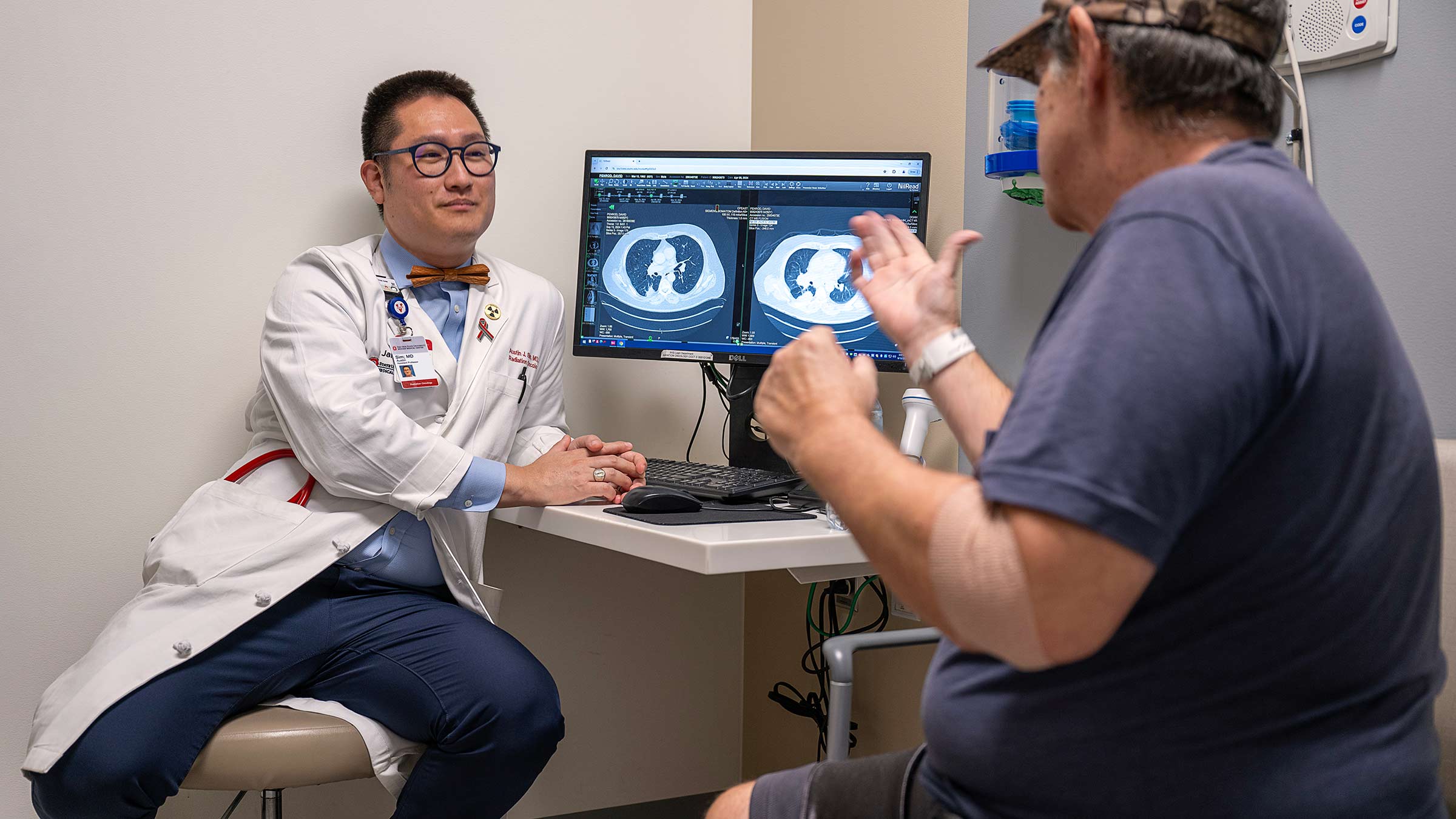
Among the simplest of screening tests
Penrod, 63, began smoking as a teenager and had quit about one year before his screening in March 2024. He says it was simple and quick at the unit parked about 10 minutes from his Long Bottom home. The atmosphere, he says, was just like a doctor’s office.
Lung cancer screening is among the simplest tests for cancer, says Michael Wert, MD, a pulmonologist at The Ohio State University Wexner Medical Center and the OSUCCC – James. It takes about 30 seconds as a patient lies on a table, and it doesn’t involve any contrast, IV or pain. That’s why it makes sense to take the scanners to people.
“There’s really no reason for a patient to drive several hours and take a day off work to get something like this done,” he says.
“The hope is, with the mobile screening, that we’re dramatically increasing our screening rates and then in turn, finding cancers at much, much earlier stages,” Dr. Wert says.
Dr. Wert says the unit is one of fewer than 10 in the nation and the only one in Ohio.
“It’s very unique,” he says. “Hopefully it will become more mainstream. It’s so easy, there’s really no excuse not to have more availability in more rural, underserved areas.”
Further, CT lung cancer screening is very effective. It saves more lives than any other screening effort for all other cancers, Dr. Pannu says.
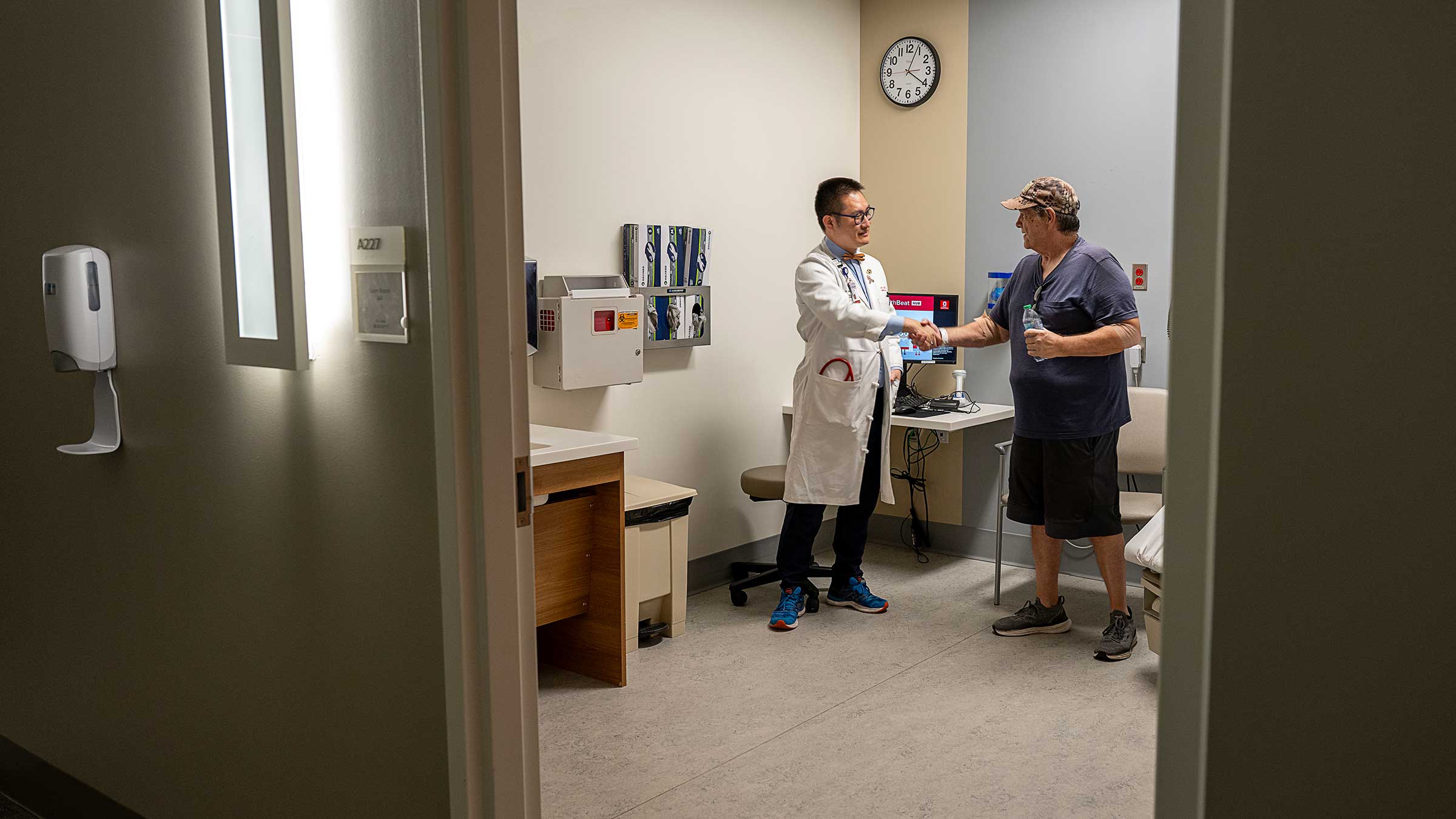
Hope after lung cancer screening
Within a few days of his scan, Penrod received a call with concerning results — something questionable was seen on his right lung.
He chose to have follow-up care at the OSUCCC – James, where he received another scan and a biopsy. He was diagnosed with stage-three non-small cell lung cancer, too advanced for surgery, but confined enough that doctors were confident it could be treated with chemotherapy and radiation.
“That’s a game changer, the proverbial punch in the gut. I’d always been a very healthy person,” says Penrod, who had managed a landscaping crew before his diagnosis.
He began receiving daily radiation with once-a-week chemotherapy, staying with his son and young granddaughter in the Columbus area to avoid the drives from southeast Ohio. After six weeks of treatment, and a little time off, Penrod was reassessed. The treatments had done their job and imaging showed no sign of the tumor.
Penrod encourages others who are eligible to “absolutely go ahead” with screening.
“Even if you were like myself — my whole life I didn’t spend a lot of time with doctors — just go in there, get it done,” he says. “And then if you do find out that you do have an issue, just go ahead and get that issue taken care of.”

Lung cancer screening saves lives
For more information about lung cancer screening at the OSUCCC – James, click the link below or call 614-293-6939.
Learn more and schedule an appointment
Your gift supports more lung screenings
Help us save more lives by supporting important screenings and early detection.
Give today



